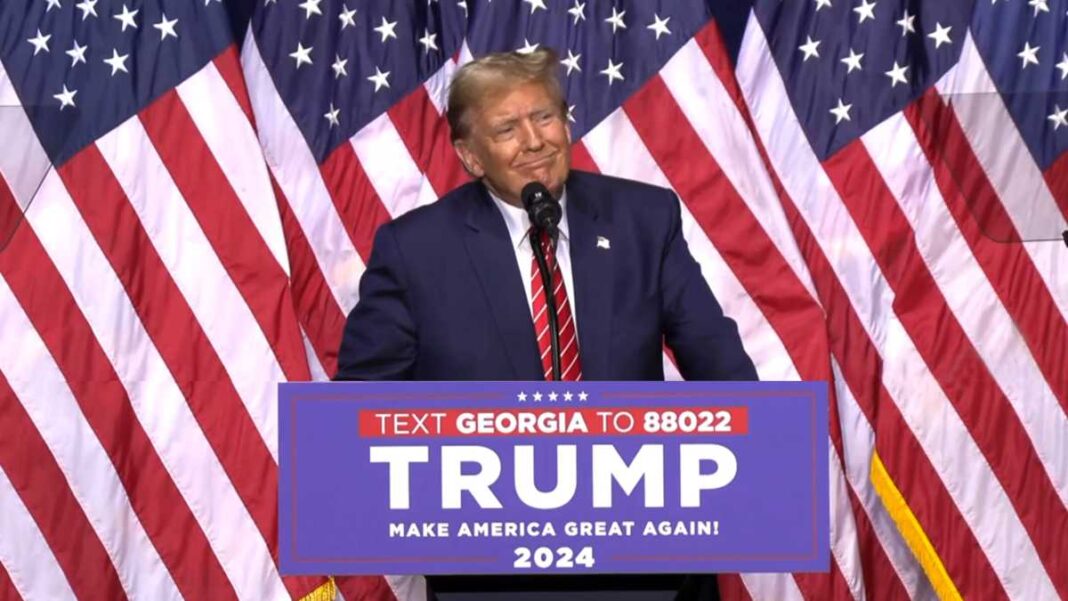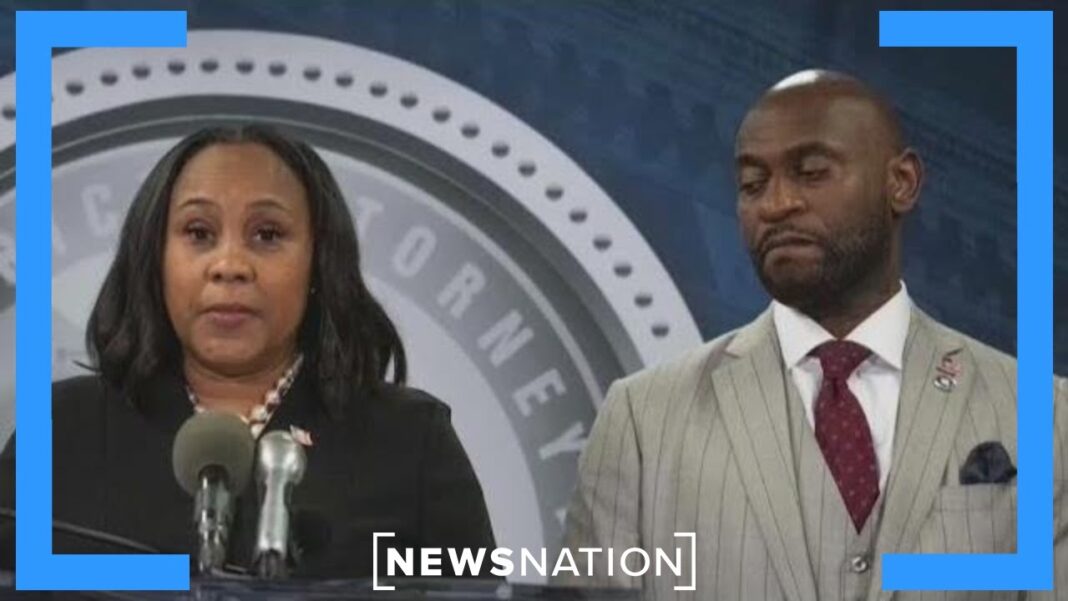Judge Scott McAfee has denied former President Donald Trump’s motion to dismiss charges under the First Amendment.
Fulton County Superior Court Judge Scott McAfee has denied former President Donald Trump’s motion to dismiss charges under the First Amendment, noting that the way the challenge was brought limited the arguments that could be made.
“Without foreclosing the ability to raise similar as-applied challenges at the appropriate time after the establishment of a factual record, the Defendants’ motions based on First Amendment grounds are denied,” the judge wrote in an April 4 order.
President Trump is being charged along with 14 others of violating Georgia’s Racketeer Influenced and Corrupt Organizations (RICO) Act for their actions in challenging the 2020 election results.
He had brought a First Amendment as-applied challenge, arguing that everything he said listed in the indictment was protected by the First Amendment. The defense also touched on making a First Amendment facial challenge, arguing that the charges were overly broad and the statutes may be unconstitutional.
But when such a challenge is made before trial, the only record of facts that can be used is the indictment itself. The allegations must be accepted as fact at this stage.
Much of President Trump’s speech is cited as part of the RICO charge, in which legal acts and truthful speech can be listed in order to show that an “operation” was in place, prosecutors explained.
The First Amendment doesn’t protect speech “integral to criminal conduct, fraud, or speech presenting an imminent threat that the government can prevent,” the judge wrote.
Political speech is protected, as is communication to government officials, but protection “does not extend to allegedly fraudulent petitions,” the judge wrote.
In the indictment, prosecutors allege that all included speech was tied to criminal conduct and the furtherance of a conspiracy.
Defense attorney Steve Sadow argued that President Trump’s speech couldn’t be prosecuted for falsity and that courts have recognized that even false speech must be protected, as free debate cannot be free from error.
However, the judge found that prosecutors brought charges not because the speech was “false” but because President Trump allegedly “knowingly” and “willfully” acted in a way that “impacted matters of governmental concern.”








